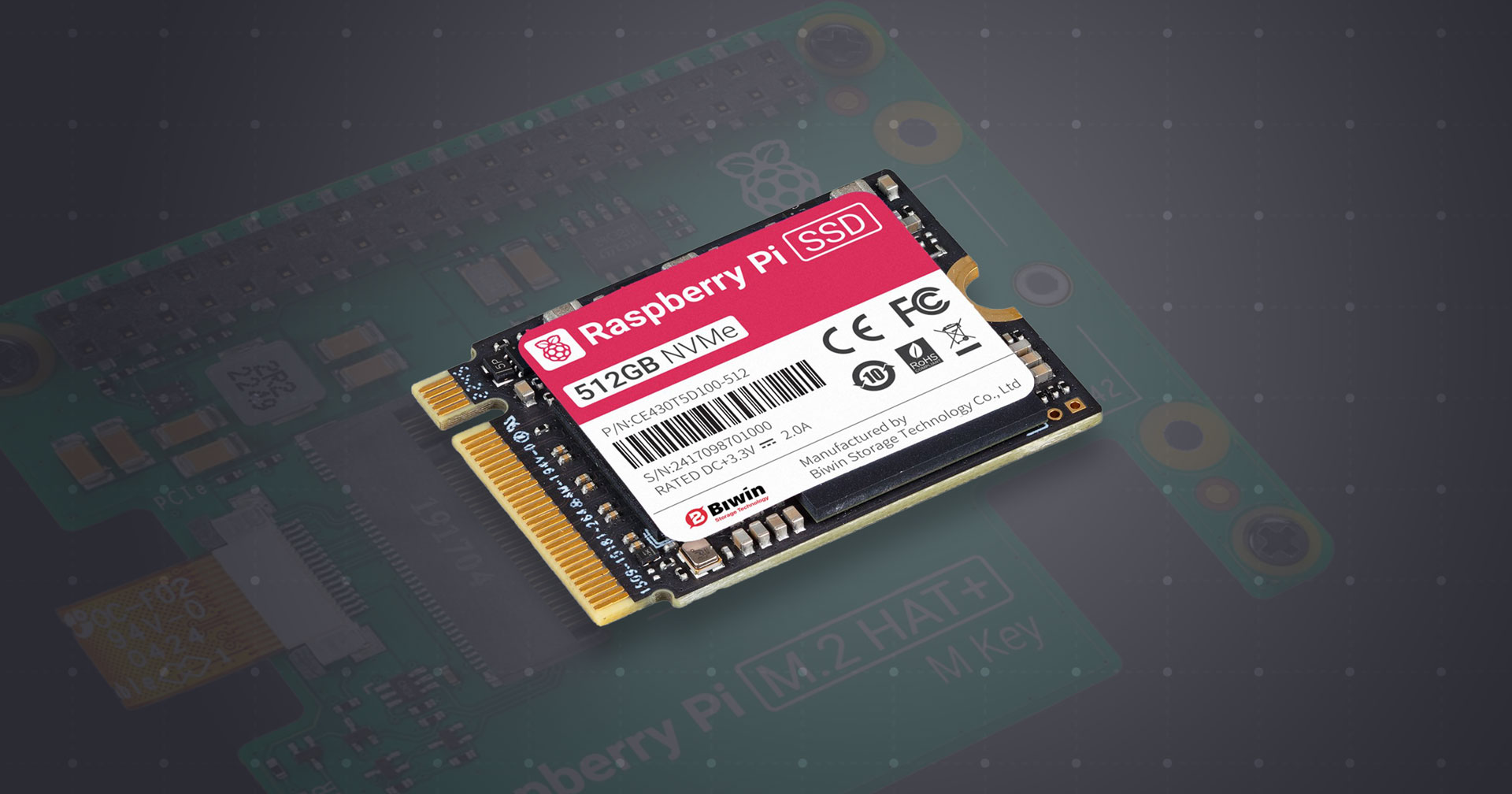Raspberry Pi Launch Own-Brand SSDs Priced From $30
One of the best things about the Raspberry Pi 5 (other than the performance boost over its predecessor) is how much simpler it is to add an SSD.
And if you’re running a full desktop OS like Ubuntu you should use an SSD: startup times are blazingly fast, and the I/O performance blows even top-end SD cards out of the water (so to speak – you shouldn’t put SD cards in water).
But finding the right NVMe SSD can be a mission. So many brands, so much choice, so many speed claims, so many issues since not all NVMe SSDs play nice with the (many) M.2 HAT expansions that exist for the Raspberry Pi 5.
So Raspberry Pi is making it easier.
Having recently announced is own range of Raspberry Pi-branded SD cards (with support for command queuing on the Pi 5 and reliable read/write speeds) the company is now offering its own range of branded Raspberry Pi SSDs.
The official Raspberry Pi SSDs come in 2 sizes, and appear competitive price-wise with budget SSDs. Plus, for the price, you do get the assurance that the drive will work well with the official M.2 HAT and most 3rd-party boards, e.g., the $10 Pineboards HatDrive! Nano:
- 256 GB (40/70 IOPS) – $30/£28
- 512 GB (50/90 IOPS) – $45/£42
And for those who don’t have an M.2 expansion board?
Well, that’s where the new Raspberry Pi SSD Kit comes in. It bundles the official M.2 HAT+ with an SSD for an all-in-one, ready-to-roll solution.
- 256 GB SSD + M.2 HAT Kit – $40/£37
- 512 GB SSD Kit + M.2 HAT Kit $55/£51
Given how versatile the PCI Express port on the Raspberry Pi 5 is – the official AI HAT can use it; a PoE HAT can use it; and even external PC graphics cards can use it – it’s a shame there’s only one.
But hey: fast, reliable, and roomy storage is what most of us want, so use that port to connect a speedy SSD is by far and away a sensible, if not the most exciting, use.
I use a bottom-mounted Pimoroni NVMe base with a 128GB Patriot P300 SSD on my Pi 5 if anyone is interested—oh, no-one is…
Anyway, if you’re interested in learning more about these drives the official announcement post can fill you in, otherwise point your browser at your preferred approved Raspberry Pi reseller to pick up a standalone Raspberry Pi SSD or the Raspberry Pi SSD kit bundle.
